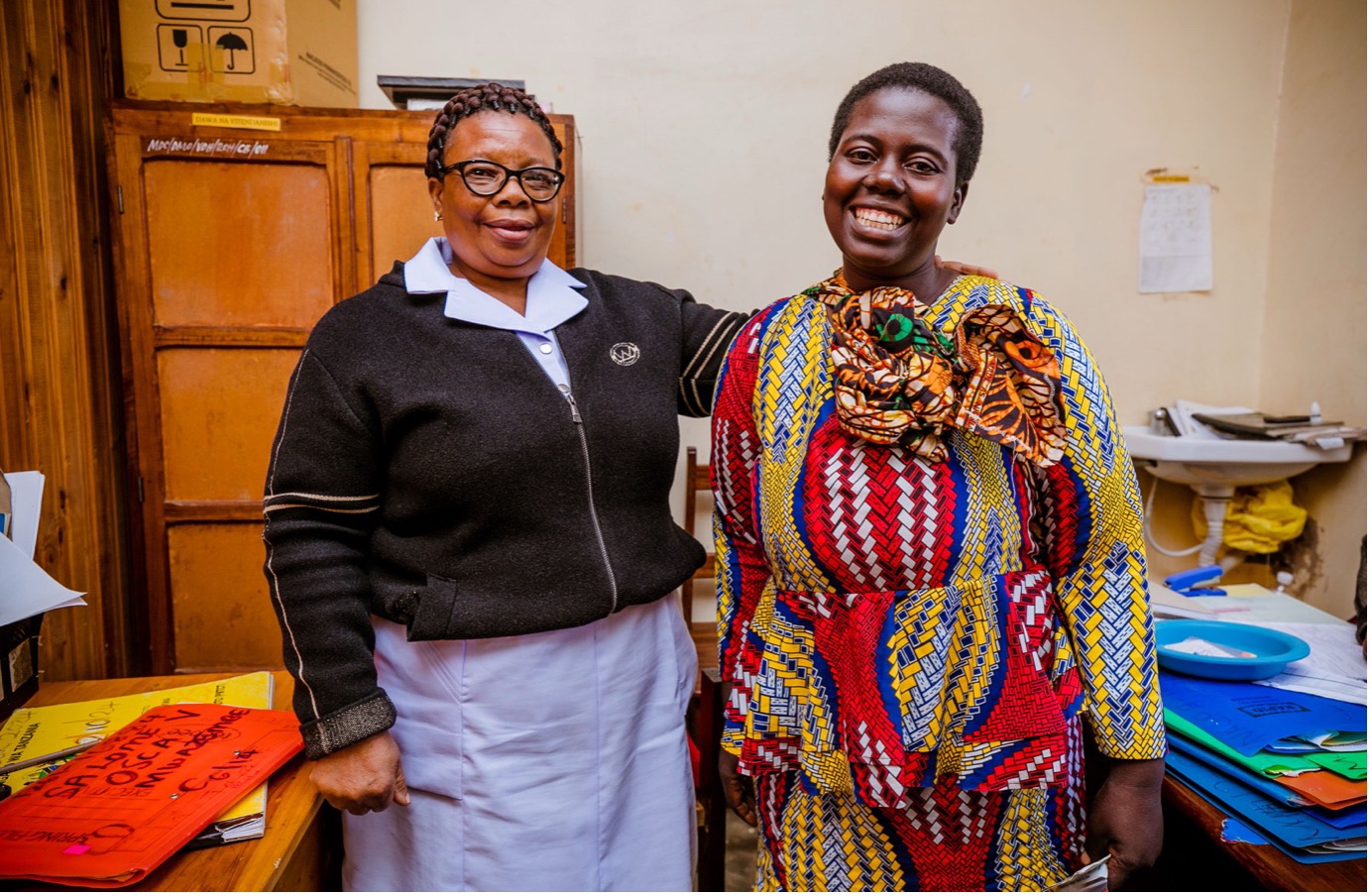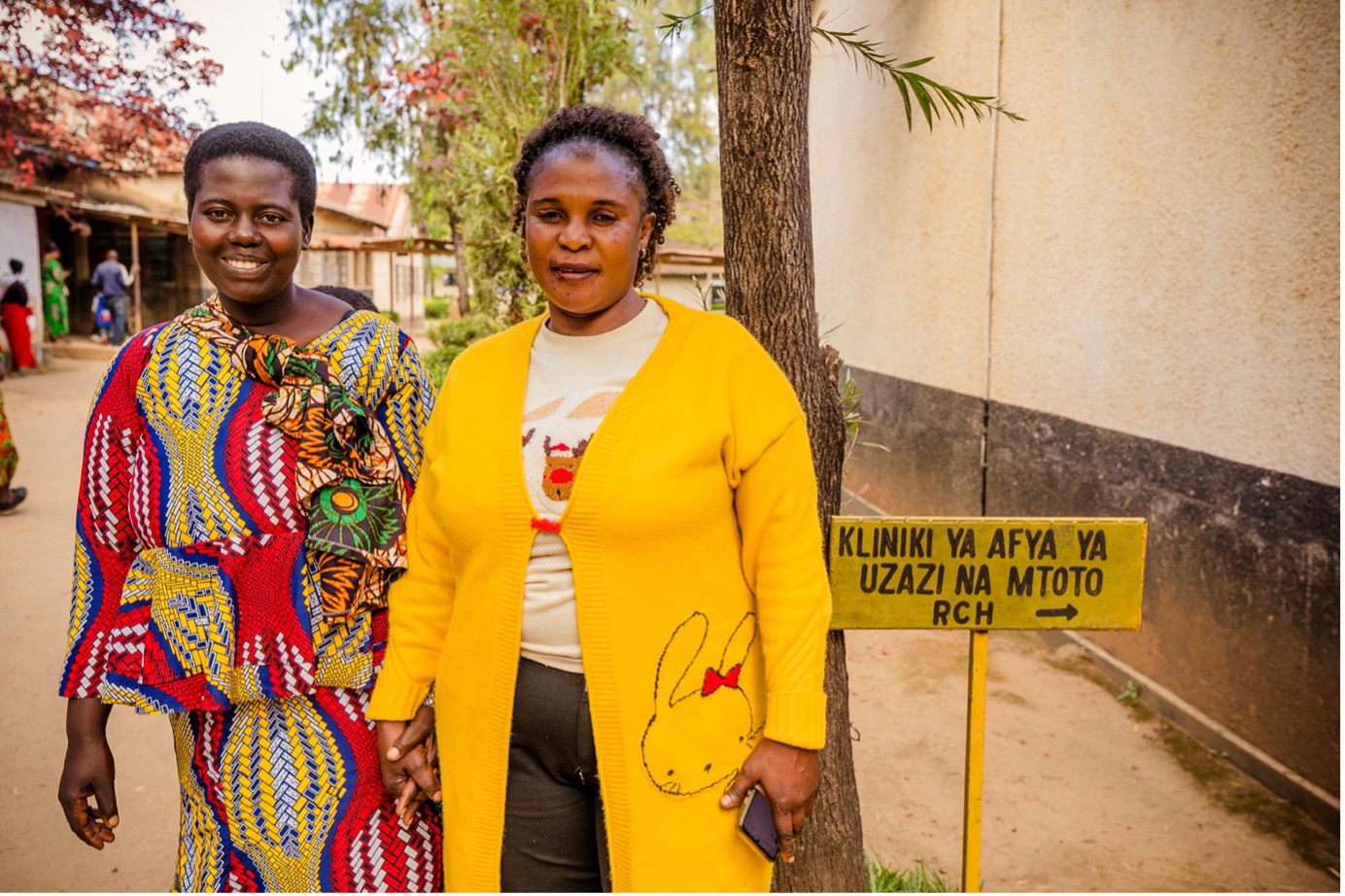
--By Owen Mwandumbya, HJFMRI Tanzania
In 2014, Salome Mwazembe walked into the Reproductive and Child Health (RCH) clinic at Vwawa District Hospital for a routine check-up during her second pregnancy. That visit changed her life; she was diagnosed with HIV infection.
“I was afraid,” Salome recalls. “All I could think about was my unborn baby. But the nurses told me I could live, and my child could be born healthy. That gave me hope.”
She was immediately initiated on antiretroviral therapy (ART), marking the beginning of a life-saving journey. Her husband also tested positive and was enrolled in care and started ART. Today, both are thriving; a testament to their shared strength, resilience, and commitment to family.
Salome is now a proud mother of four HIV-negative children. Her youngest, just eight months old, continues to thrive and is expected to undergo final HIV testing at 18 months, a milestone she and her care team believe will bring good news.
This transformation was made possible through the dedicated efforts of healthcare workers at Vwawa District Hospital, including Sr Violeth Mwalongo, and Mentor Mothers supported by MHRP’s PEPFAR program.
“Salome was committed from the beginning,” says Sr Violeth. “She followed every instruction, came to every appointment, and never gave up. With support from our team, especially our Mentor Mother Ms. Sarah Mwakajinga, Salome stayed on track and protected her children.”
Mentor Mothers, like Sarah Mwakajinga, play a vital role in the Prevention of Mother-to-Child Transmission (PMTCT) program. Sarah was introduced to Salome early in her journey and has been by her side ever since.

“When I met Sarah, everything changed,” says Salome. “Knowing she was also living with HIV gave me confidence. She reduced my fear and showed me that I was not alone.”
Sarah provided continuous support, educating Salome on ART adherence, addressing fears about side effects, conducting home visits, and ensuring she attended all appointments.
“Sarah has been my right hand,” Salome says. “She’s helped me take my medication consistently and get care whenever I needed it.”
With support from the U.S. President’s Emergency Plan for AIDS Relief (PEPFAR) through the Walter Reed Army Institute of Research (WRAIR), HJFMRI has strengthened PMTCT services in the Songwe Region. At Vwawa District Hospital alone, more than 179 pregnant and breastfeeding women living with HIV are receiving care.
Dr. George Matasha, HJFMRI District Program Lead for Mbozi DC, explains:
“As part of our strategy, we have placed Mentor Mothers in supported health facilities to ensure that mothers living with HIV are identified, promptly linked to care and treatment, and consistently followed up at the community level throughout pregnancy and the breastfeeding period. These Mentor Mothers provide essential peer-based psychological support, adherence counseling, disclosure guidance, and assistance in transitioning mothers from Maternal and Child Health (MCH) services to general ART clinics as they complete their stay at RCH according to the national guidelines.
In Salome’s case, the dedicated support of her Mentor Mother, Sarah, played a critical role in ensuring that all her children received timely and appropriate care. We’re happy and proud to report that they are all HIV-negative.”
MHRP supported the Songwe Region, including Vwawa District Hospital, in testing 37,819 pregnant women for HIV in the last fiscal year. Among them, 422 were newly identified as living with HIV, and all were successfully linked to care and treatment. Additionally, 1,395 pregnant women were already known to be living with HIV during their pregnancies. As a result of comprehensive Prevention of Mother-to-Child Transmission (PMTCT) services, 1,799 children were protected from HIV infection, representing a 99% success rate.
Dr. Nassoro Yahya, HJFMRI Regional Manager for Songwe Region, emphasizes the importance of regional collaboration:
“By implementing PMTCT activities together with the regional health authorities, we’ve strengthened maternal and child health services. This includes joint planning, supportive supervision, and capacity building for healthcare workers.”
Today, Salome is a symbol of resilience and hope — healthy, empowered, and full of gratitude.
“I look at my children and I see victory,” she says with a smile. “Because of the care I received, they are free of HIV. I am so thankful to the nurses and everyone who supports this clinic. You saved my family.”
